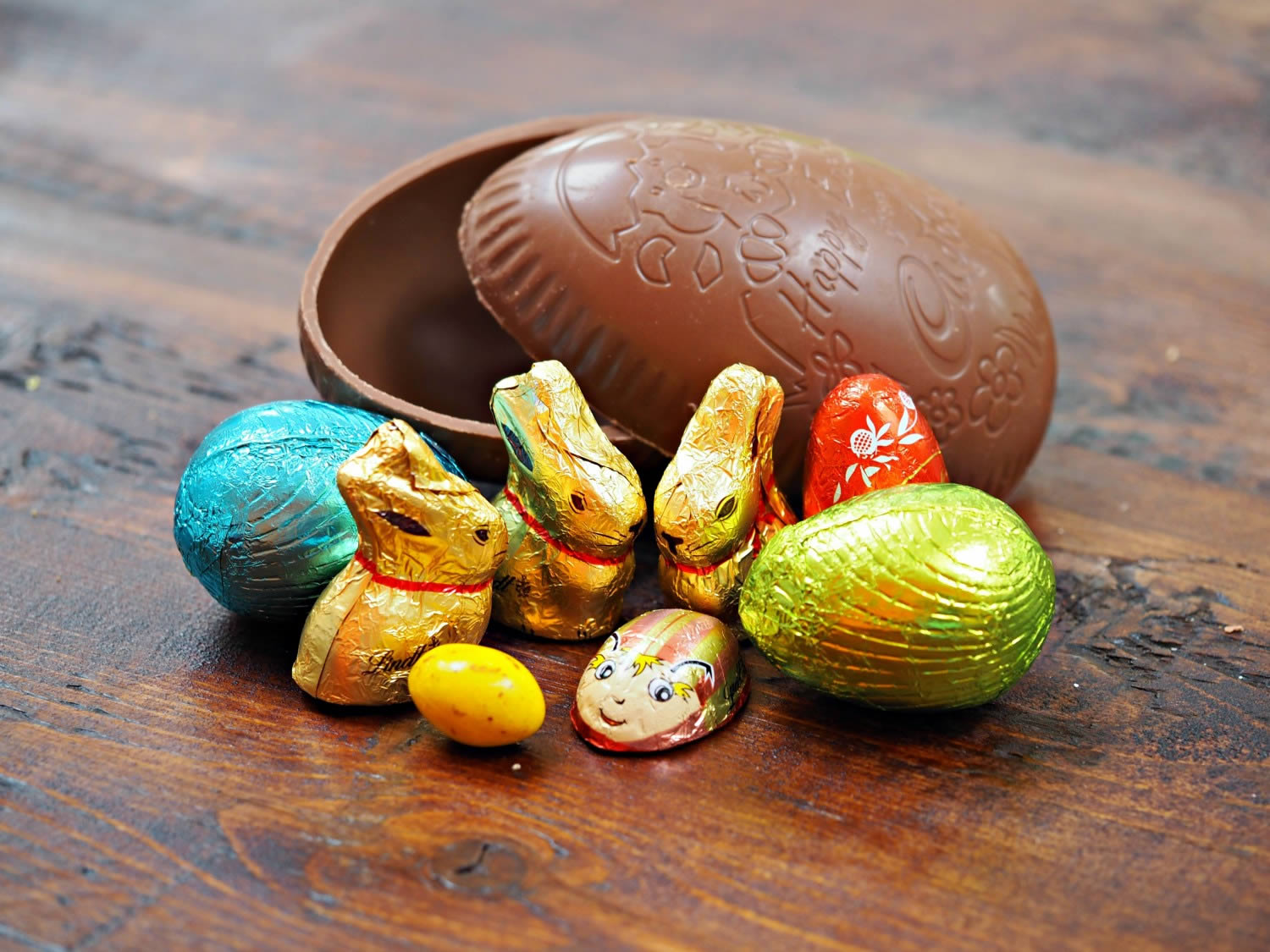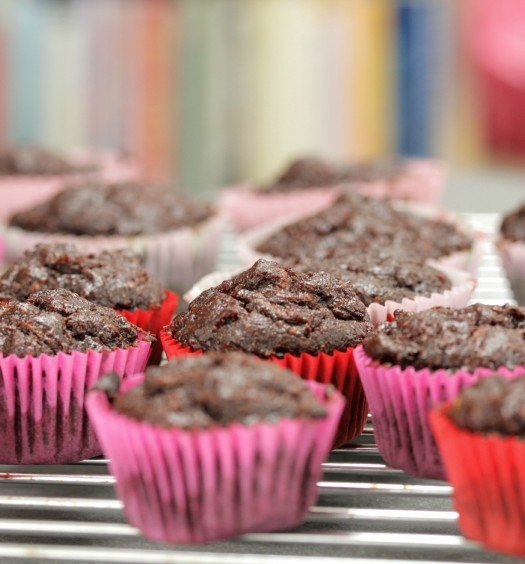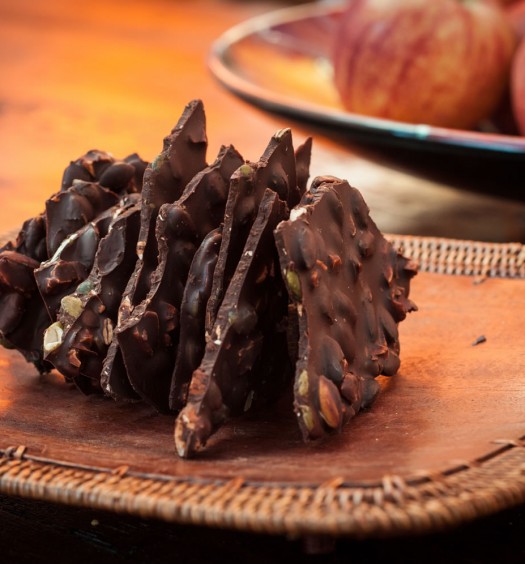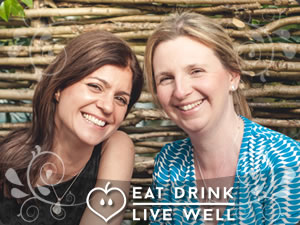Why chocolate can be a great addition to the diet - if you choose right
It’s here. The chocolate fest is about to start. It’s hard to escape Easter Chocolate, particularly if you have kids, but if you choose your chocolate with care, there’s no need to feel guilty; chocolate can be a good addition to the diet.
 Personally, there’s not any other time of year where we have more chocolate in the house. Little foil-wrapped eggs and gold Easter bunnies peer at me from their temporary homes in various wardrobes. The children know that it’s the one time of year that they’ll always get away with more (questionable quality) chocolate than usual; Easter Egg hunts with chocolate eggs at the end, and popping the odd tiny chocolate egg in their mouths as we make up the Easter gift baskets for family.
Personally, there’s not any other time of year where we have more chocolate in the house. Little foil-wrapped eggs and gold Easter bunnies peer at me from their temporary homes in various wardrobes. The children know that it’s the one time of year that they’ll always get away with more (questionable quality) chocolate than usual; Easter Egg hunts with chocolate eggs at the end, and popping the odd tiny chocolate egg in their mouths as we make up the Easter gift baskets for family.
We’re big fans of chocolate at Eat Drink Live Well and we obviously realise that Easter Chocolate isn’t always the healthiest option. But the purpose of this blog is to highlight why, for the rest of the year, we have absolutely zero guilt about enjoying good quality chocolate; by ‘good quality chocolate’ we’re meaning dark, organic and Fair-trade.
Reasons we like chocolate:
- We don’t believe in ‘forbidden’ foods for children. We are of course hoping that when they’re adults they’ll choose to avoid certain foods (that remains to be seen and we’ll update you on that in 15 years!) and gravitate towards healthier options.
- Accepting dark chocolate indicates a subtle move towards less sugary taste preferences; cheaper, unhealthy milk or white chocolate then tastes more sickly, artificial and is less appealing.
- Raw cacao, cocoa and dark chocolate all show benefits to cardiovascular health, reducing cholesterol, blood pressure and platelet aggregation. In short, it’s heart healthy and may also help to balance blood sugar levels (despite the sugar that is still added to dark chocolate).
- Cacao, cocoa and dark chocolate have higher antioxidant potential than most fruits and vegetables. Raw cacao (i.e. not cooked) has approximately double the amount of antioxidants than cocoa, and cocoa in turn has approximately five times the amount of dark chocolate. Yet dark chocolate is still way ahead of the other foods we normally turn to for our antioxidant intake – blueberries, cherries and broccoli included. So a little dark chocolate can make a good contribution to our daily antioxidant intake.
- The flavonoids from chocolate only last for around six hours in the body which means we need a regular intake (hurray!). So a hot chocolate made with cocoa in the morning and a small square of dark chocolate after lunch is totally nutritionally justifiable.
- Contrary to popular belief, if you’re only eating small quantities of chocolate, it’s not a big source of caffeine
So going back to Easter. Chocolate eggs are now looking a bit more like a guilt-free pleasure if you choose right. But the key is choosing right:
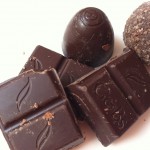 Firstly, the chocolate needs to be dark – i.e. 70% cocoa solids or more. Milk chocolate and white chocolate might be tasty but they don’t have the same health benefits.
Firstly, the chocolate needs to be dark – i.e. 70% cocoa solids or more. Milk chocolate and white chocolate might be tasty but they don’t have the same health benefits.
Secondly, choose organic. The cacao tree is notoriously difficult to grow and so the cocoa bean is one of the highest pesticide-laden crops. Much of our cocoa comes from West Africa where the toxic chemical lindane, banned in the UK, Europe and the USA, is still used. Lindane is a hormone disrupter, linked to breast cancer. So it’s important that cocoa is organic if you want to avoid a pesticide-burst at the same time.
Thirdly, buying Fair-trade chocolate gives farmers a better price for their crop, and encourages cocoa farmers to grow the trees in their natural habitat, under the shade of larger trees, where the need for pesticides is lower. When cocoa trees are grown on large-scale plantations, in direct sunlight, they are out of their preferred environment and require more synthetic fertilisers, herbicides and pesticides.
So that’s the ideal; dark, organic and Fair-trade. But we’re realists. We know that over Easter kids would much prefer the gaudily-wrapped milk chocolate bunny to a dark chocolate egg, so in the interests of a Happy Easter it’s just better to go with the flow and have a relaxed approach to this for a few weeks. But once Easter’s over (or if you don’t have kids!) have a think about the type of chocolate you eat – and how just switching the type of chocolate you eat could make a guilt-free, positive addition to your diet.
We hope you enjoy this blog post, let us know your thoughts in the comments below or on social media – we’re on Twitter, Facebook, Instagram and Pinterest. And don’t forget to sign up to our newsletter to receive a monthly update of our recipes, nutrition tips and expert advice.

